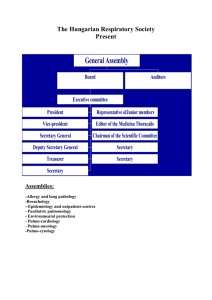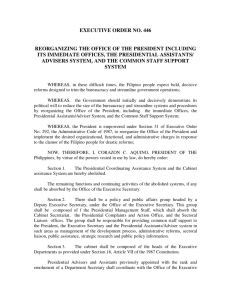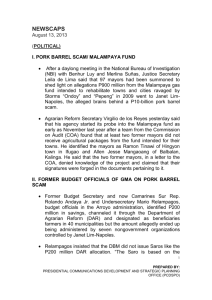Framers' view (1789) King Caucus (1789
advertisement
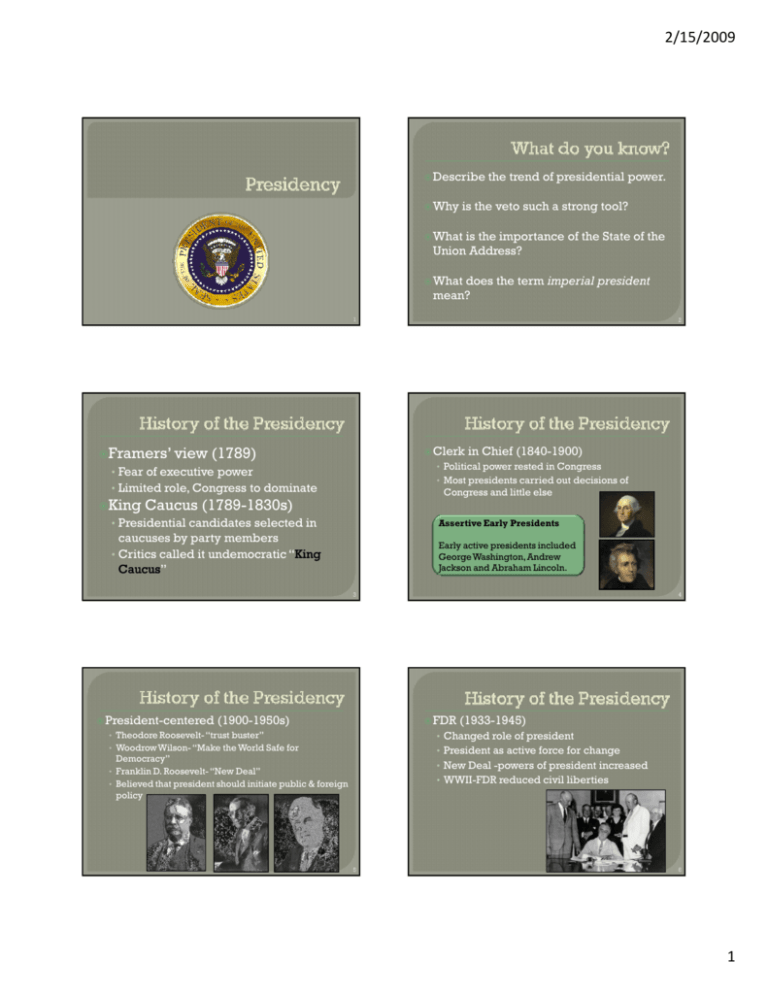
2/15/2009 Describe Why the trend of presidential power. is the veto such a strong tool? What is the importance of the State of the Union Address? What does the term imperial president mean? 1 Framers’ view Clerk (1789) in Chief (1840-1900) • Political power rested in Congress • Fear of executive power • Limited role, Congress to dominate King 2 • Most presidents carried out decisions of Congress and little else Caucus (1789-1830s) • Presidential candidates selected in Assertive Early Presidents caucuses by party members Early active presidents included George Washington, Andrew Jackson and Abraham Lincoln. • Critics called it undemocratic “King King Caucus” Caucus 3 President-centered (1900-1950s) 4 FDR • Theodore Roosevelt- “trust buster” • • • • • Woodrow Wilson- “Make the World Safe for Democracy” • Franklin D. Roosevelt- “New Deal” • Believed that president should initiate public & foreign (1933-1945) Changed role of president President as active force for change New Deal -powers of president increased WWII-FDR reduced civil liberties policy 5 6 1 2/15/2009 Imperial Presidency (1960s-Present) Eligibility • Increased presidential power in foreign & • 35 years old • 14 year resident of US • Natural-born citizen domestic policy • Critics claimed president has too much power • After 9-11 many fear return of imperial president America's youngest president was not JFK (43) it was TR (42). 7 8 Campaigning Electoral • Must win primary elections (open to the College • Winner of presidency is the winner people) • Officially selected by party at convention • General election=democrat vs. republican & (independents) • Televised debates of the Electoral College Each state gets a number of electors equal to its number of congresspersons (Idaho=4) Electors vote for their party’s candidate Faithless electors vote for someone other than the winner of the popular vote 9 Vice President • Increased power over recent years (Gore & Cheney) • Right running mate can help win elections • VP’s main job is to become pres if pres can’t 10 Order of Presidential Succession Order of Presidential Succession 1 Vice President 14 Secretary of transportation 2 Speaker of the House 15 Secretary of Energy 3 President Pro Temp of Senate 16 Secretary of Education 4 Secretary of State 17 Secretary of Veterans’ Affairs 5 Secretary of the Treasury 18 Secretary of Homeland Security 6 Secretary of Defense 7 Attorney General Order established by Presidential Succession Act (1947) 8 Secretary of the Interior 9 Secretary of Agriculture 10 Secretary of Commerce 11 Secretary of Labor 12 Secretary of Health & Human 11 13 Secretary of Housing & Urban 12 2 2/15/2009 The Bureaucracy Bureaucracy—what president has six major roles: Role Summary Chief of State Act as the symbolic leader of the country Chief Executive Executes the laws, appoints key federal officials, grants pardons Commander in Chief Runs the armed forces Chief Diplomat Negotiates with other countries Chief Legislator Signs or vetoes legislation, introduces legislation, works with Congress on the budget Superpolitician Helps his party raise money and elect candidates is it? • How the president executes the laws • Bureaucrats carry out government policy—put laws into action Write rules & regulations red tape) tape (red Administer policies to the people 13 How is the President the Chief Legislator? 14 Presidential • President gained legislative powers over time Approval • Measured by polls High-60% or above Low-below 50% • Honeymoon period after taking office president gets treated well (for a few months) • People expect a the president to have a legislative agenda Series of laws which president wants passed These proposed laws are revealed in the yearly State of the Union address • Signs bills into law • Veto bills (pocket pocket veto veto) • Federal budget 15 Presidential leadership Factors to a successful presidency 1. Strong leadership: leadership ability to get people • Successful president engages in behind him. statecraft Combination of power & wisdom for the public good Good statesmanship includes: 1. Political skill: skill ability to persuade. 2. Prudence Prudence: ability to think before acting. 3. Opportunity Opportunity: the ability to be decisive. 16 2. Congress Congress: ability to control or persuade members of Congress. 3. Popularity Popularity: ability to convince others to do what he wants and be liked. Circumstances in history make it difficult to fairly evaluate presidents. For example how would FDR have handled the first years of the nation or George Washington the Great Depression? 17 18 3 2/15/2009 Describe the general trend of the development of presidential power. Who do you think was among the best presidents and why? Why is the veto such a strong tool? What is the importance of the State of the Union address? What does the term imperial president mean? 19 20 4
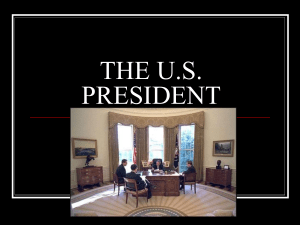
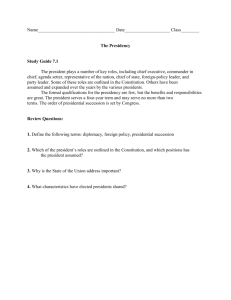
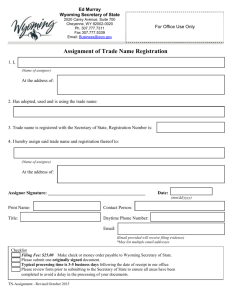

![August 20, 1986 SG/94/86 D-08 From: The Secretary General [*] To](http://s3.studylib.net/store/data/007822023_2-1a5272e9a5af1caa9930908b70495ac3-300x300.png)
